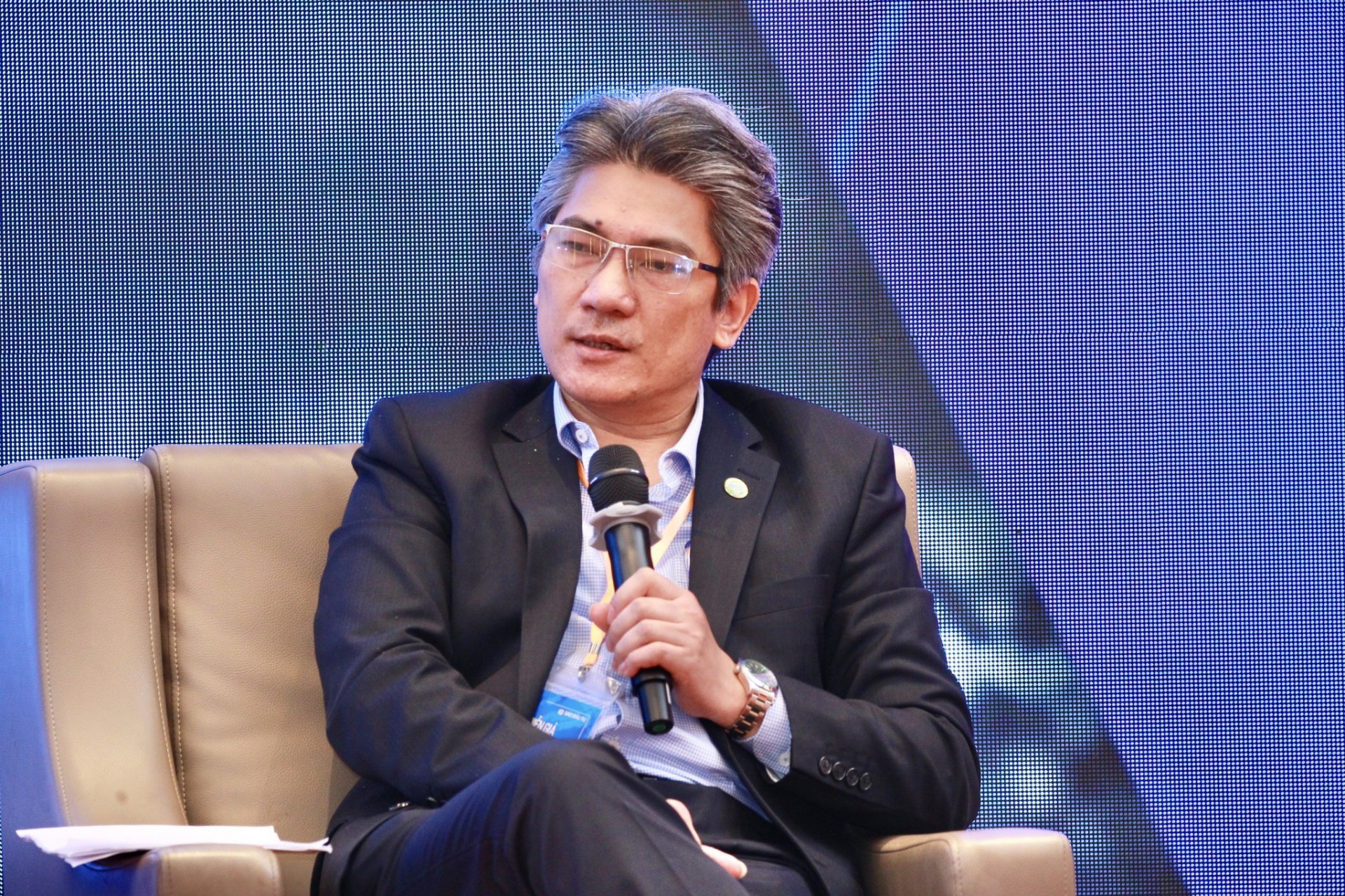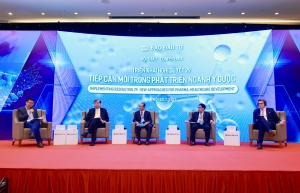Vietnam's pharma sector shows potential
 |
| Prof. Nguyen Hai Nam, rector of Hanoi University of Pharmacy |
Alongside financial resources and regulatory parameters, Nam regards human resources as the primary driver for the expansion of high-tech pharmaceuticals, a sector recognised for its innovation and creativity.
"Vietnam stands ready to meet the workforce demands of global corporations, should they decide to invest," Nam said at VIR’s conference on July 20, which discussed new approaches for the development of the pharmaceutical industry.
According to Nam, Vietnam is home to 41 pharmaceutical training institutions with approximately 37,000 students. The number of annual graduates is approximately 6,800, marking a tenfold increase over the last decade.
"On average, 15 per cent of these graduates enter the pharmaceutical-technology field each year, meeting the requirements of large pharmaceutical corporations and global research centres," he stated. "Besides pharmacists, the pharmaceutical sector also demands skilled pharmaceutical technicians, for the manufacture of chemical and biological ingredients."
Vietnam currently trains organic chemistry bachelors across 13 institutions, contributing approximately 800 graduates each year. These professionals are equipped to participate in the challenging arena of new drug development.
"Vietnam's resources are sufficient to meet investor demand for pharmacist and pharmaceutical chemistry training," Prof. Nam said.
Despite the high-risk and rigorous nature of the pharmaceutical sector, Vietnam continues to persevere in attracting foreign direct investment to its healthcare and pharmaceutical sectors. However, procedural bottleneck challenges remain, requiring more aggressive administrative reforms to streamline processes and entice foreign-invested projects.
"One hindrance is the extended timeframe from project initiation to investment realisation, which can take up to five years. This extended period may dissuade foreign-invested enterprises and steer them towards countries offering more lenient mechanisms." he added.
He also suggested implementing tax-incentive schemes for firms making significant investments in research and development, mirroring innovation models like those seen in South Korea.
Alongside a robust talent pool in the pharmaceutical sector, these proposed reforms could significantly elevate Vietnam's attractiveness to international investors, thereby fostering the growth of a native pharmaceutical industry, and further developing the nation's healthcare landscape.
“With the right administrative and tax reforms, Vietnam's robust talent pool can make the country a viable contender for global investment in the high-tech pharmaceutical sector,” he concluded.
 | Vietnam at the crossroads: The race to secure pharma investment The first panel session, themed Vietnam at the crossroads: The race to secure pharma investment, from VIR's event Realising Resolution 29: New Approaches for Pharma-Healthcare Development on July 20 drew significant attention. The discussion centred around the quality of labour in the pharmaceutical sector and the strategic decisions that Vietnam faces in its pursuit to attract investment in this vital industry. |
 | Powering innovation for sustainable pharma-healthcare development Experts highlighted the importance of powering innovation for sustainable pharma-healthcare development at the second panel discussion at a VIR conference on Thursday July 20. |
What the stars mean:
★ Poor ★ ★ Promising ★★★ Good ★★★★ Very good ★★★★★ Exceptional
Themes: Healthcare Platform
- PM outlines new tasks for healthcare sector
- Opella and Long Chau join forces to enhance digestive and bone health
- Hanoi intensifies airport monitoring amid Nipah disease risks
- Cosmetics rules set for overhaul under draft decree
- Policy obstacles being addressed in drug licensing and renewal
Related Contents
Latest News
More News
- SK Innovation-led consortium wins $2.3 billion LNG project in Nghe An (February 25, 2026 | 07:56)
- THACO opens $70 million manufacturing complex in Danang (February 25, 2026 | 07:54)
- Phu Quoc International Airport expansion approved to meet rising demand (February 24, 2026 | 10:00)
- Bac Giang International Logistics Centre faces land clearance barrier (February 24, 2026 | 08:00)
- Bright prospects abound in European investment (February 19, 2026 | 20:27)
- Internal strengths attest to commitment to progress (February 19, 2026 | 20:13)
- Vietnam, New Zealand seek level-up in ties (February 19, 2026 | 18:06)
- Untapped potential in relations with Indonesia (February 19, 2026 | 17:56)
- German strengths match Vietnamese aspirations (February 19, 2026 | 17:40)
- Kim Long Motor and AOJ Suzhou enter strategic partnership (February 16, 2026 | 13:27)

 Tag:
Tag:




















 Mobile Version
Mobile Version